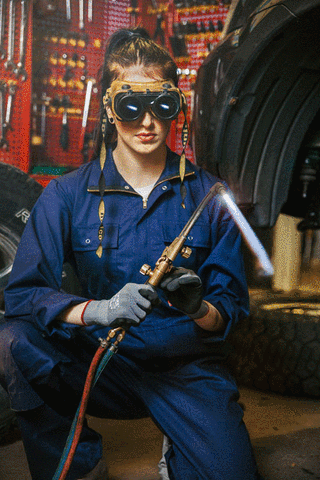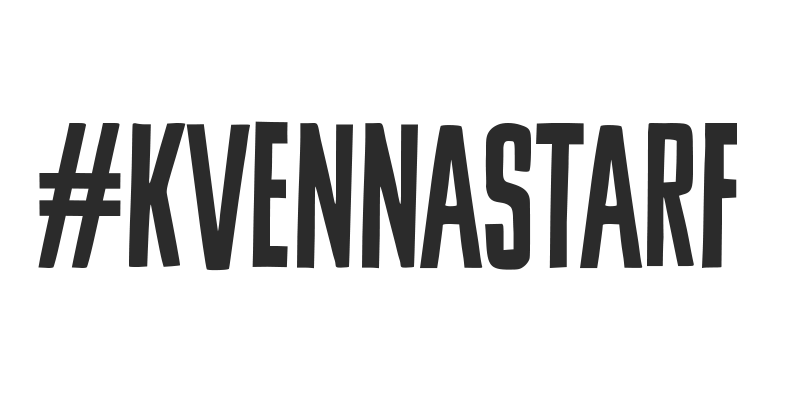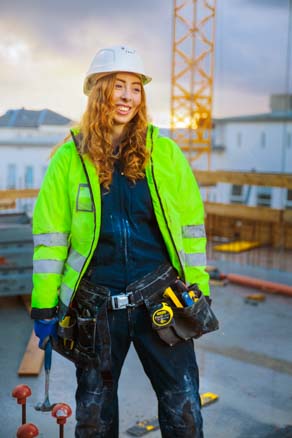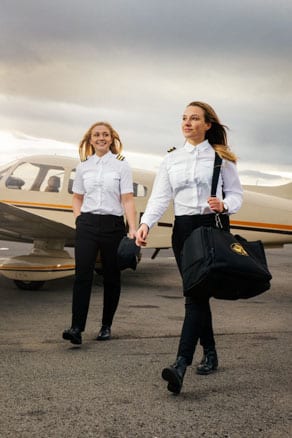#Kvennastarf
_____
About
The #kvennastarf campaign is a response to the common myth that it is natural to classify professions in to women´s work and men´s work.
The Campaign poses the question: which jobs are women´s work?
The answer is that sex or gender should not be a determining factor in choosing a course of study or profession. The traditional gendered division of labour is long outdated and irrelevant in a modern society.
All jobs are women´s work. Women should be able to choose which ever profession they want, and the same goes for men.
Purpose
It can be difficult to enter the labour market as a minority and can deter people from pursuing their career of interest.
#kvennastarf seeks to highlight the fact that there are women who work in traditionally masculine professions. Their numbers vary and, in some fields, there are only a few but the focus will be on the fact that they are there.
#kvennastarf gives these women a platform to share their experiences and introduces the younger generation to female role models to prove that everyone can pursue their desired profession.
Objective
The skilled trades are still the most male dominated fields in the labour market. There is also a great lack of vocationally educated people, and it shouldn’t come as a surprise if over half of the nation, women, dismisses these professions as a career option due to outdated stereotypes.
Vocational schools in Iceland aim to increase the number of people educated in the skilled trades. Their goal is to get 20% of elementary school students to choose vocational education in 2023 and 30% in 2030.
With #kvennastarf these schools wish to highlight and address this gender disparity.
It is plain to see that if more girls see an opportunity in vocational education, increasing the number of students in the skilled trades will be easier and in turn produce more educated people for the labour market.

Statistics
___
The total number of men who have completed a journeyman’s examination in Masonry in Iceland is 736.
The total number of women is 5.
%
Men
%




